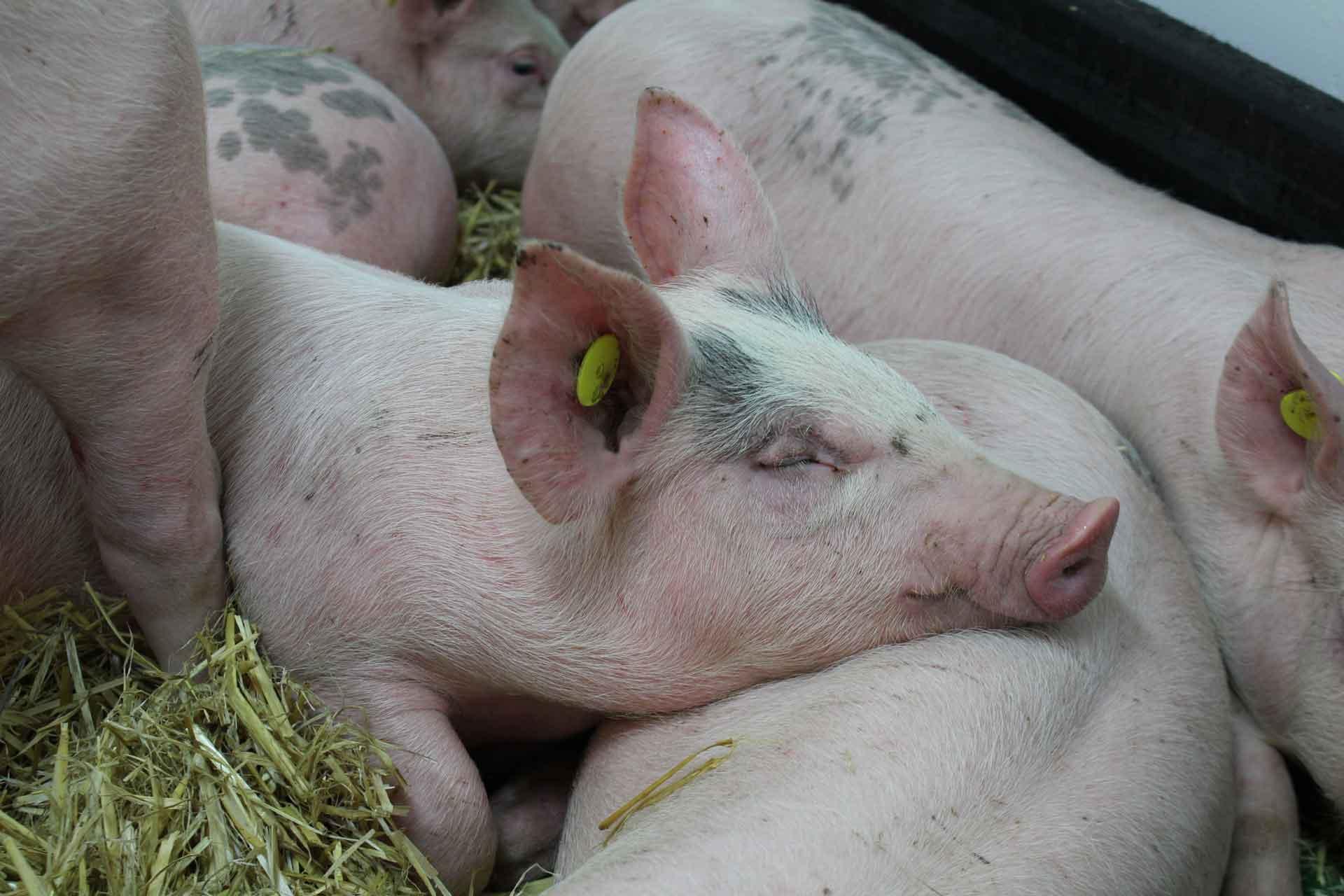African swine fever (ASF) is a deadly disease of pigs and wild boar, it does not affect people. ASF is currently threatening the world’s pig population. Separate outbreaks are decimating pig herds across Africa, Europe and Asia, with official figures from the the Food and Agriculture Organization of the United Nations (FAO) stating that close to five million pigs have been lost to the disease in Asia in the past year. This is causing serious animal welfare issues as well as impacting on the economies of countries with ongoing outbreaks and globally affecting prices and supply of pigs and other interrelated commodities.
What is the threat?
ASF, which is caused by the African swine fever virus (ASFV), kills up to 100% of infected pigs. It is not harmful to people but has severe consequences for those who are reliant on pigs as a food and income source. China’s pig herd, which comprises half of the world’s pigs, has been devastated by the disease. As a result pork prices continue to rise as production fails to keep pace with demand, necessitating the import of more pork from elsewhere. Such significant changes to the pig industry have an effect on global markets.
It is not just the pig farming industry that will feel the effects of this disease. A reduction in pig populations also has a knock on effect for the supply of feed ingredients such as soya beans. It could also indirectly cause problems for treatment of human health issues; pig heart valves provide one of the options in human heart valve replacement, and medicines such as anticoagulants rely on heparin derived from pig intestines – 80% of which is sourced from China.
The lack of treatment options or a vaccine for ASF is one of the reasons the disease has swept so quickly across Europe and Asia. ASF has many transmission routes including spread from infected wild boar to domestic pigs as well as direct transmission between pigs or infection by ingestion of infected meat. The virus can survive for long periods in uncooked, dried, frozen and cured meat, which makes imported pork products the biggest risk of introduction to a disease-free country that doesn’t border infected countries, such as the UK. If contaminated meat is imported and fed to pigs or discarded in places where pigs or wild boar could eat the remains, an ASF outbreak could ensue.
Several ASF free countries have reported cases of ASF infected meat imports during 2019, including Australia, South Korea, Japan and most recently Northern Ireland. ASFV DNA was found in meat seized by port authorities from passengers arriving in Northern Ireland, emphasising the potential risk for ASF to arrive in the UK through personal meat imports.
How Pirbright is working to protect pigs
Scientists at The Pirbright Institute have been working on understanding the virus since 1963, prior to its spread to Europe and Asia from Africa, and is one of the few institutes that continues to have an ASF research programme.
Researchers at the Institute are currently developing different types of ASF vaccines (a live attenuated vaccine and a subunit vaccine) with the aim of producing one that will protect pigs from this deadly disease. They are also working with ViroVet to produce ASF antivirals that could lower virus replication in pigs and limit clinical signs, which would form an important part of any feed-based strategy to control the virus.
As the World Organisation for Animal Health (OIE) Reference Laboratory for ASF, Pirbright provides surveillance and diagnosis of ASF globally and continually works towards improving tests to detect the virus. Pirbright experts also provide advice to Defra and OIE, and have helped to provide resources for vets that will help them to identify ASF quickly should it ever present in the UK.
How you can help keep ASF out
Imports of infected pork products to the UK are the biggest risk to our pig herds, so if you are travelling back from ASF affected areas in Europe (listed by Defra), do not bring back any pork or pork products such as cured or smoked meats, fresh food like ham sandwiches, or pet treats. It is illegal to bring back meat or dairy products from non-European Union countries, you can face prosecution and a large fine if found to be doing so.
You must not feed pigs scraps and ensure you dispose of leftover or waste food in secure bins that pigs and wildlife cannot access. Backyard and industrial pig owners alike are also reminded that swill feeding is illegal – feeding pigs kitchen scraps puts them at risk of contracting the disease.
If you visit any areas where there are pigs (commercial or backyard) or wild boar, such as the Forest of Dean, ensure that all food leftovers are thrown away in a secure bin – do not leave any food on the floor.
ASF can also be carried on vehicles and clothing – if you have returned from an ASF affected area, do not visit any premises where there are pigs or wild boar without changing or cleaning your clothes and/or your vehicle.
Practicing good biosecurity in locations where pigs are kept is essential for reducing the likelihood of an ASF outbreak. You can find more information on ASF prevention on the Defra’s website.
These precautions will help defend the UK against an outbreak, which is increasingly important considering how rapidly the ASF outbreak situation is changing. In just two weeks (July 19 – August 1) 1926 new outbreaks were reported across Asia and Europe, with Slovakia reporting its first ever occurrence of the disease, followed by Serbia on 11 August. You can find more information about ongoing ASF outbreaks on the World Organisation for Animal Health (OIE) website.
